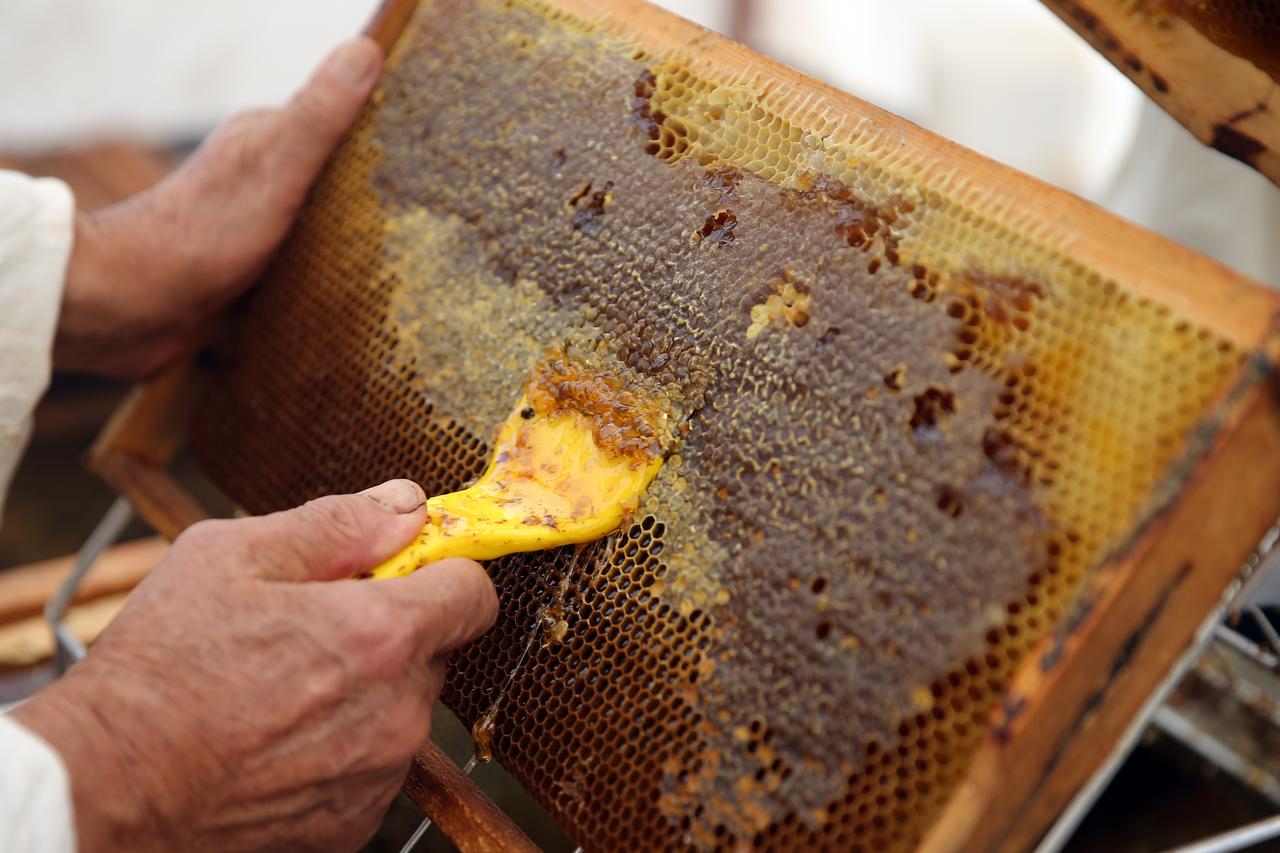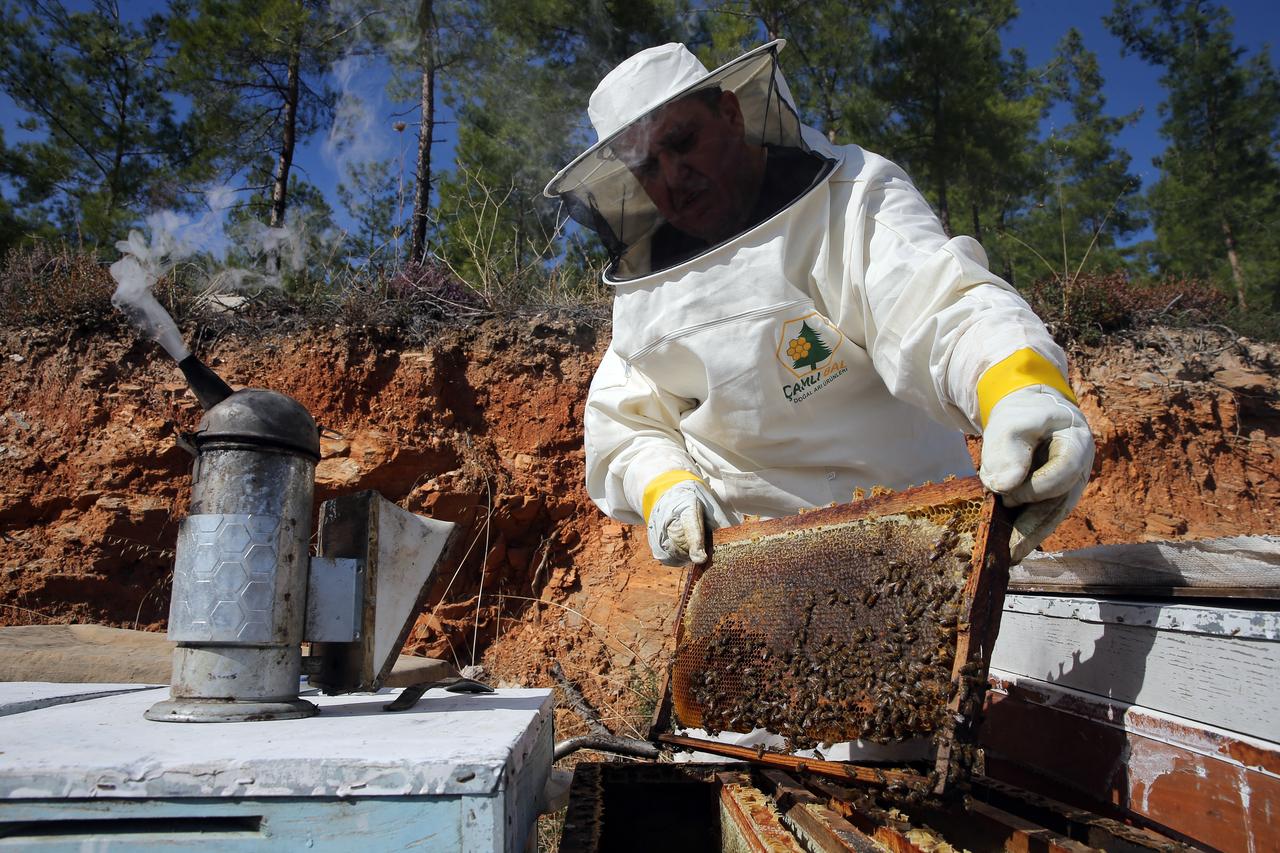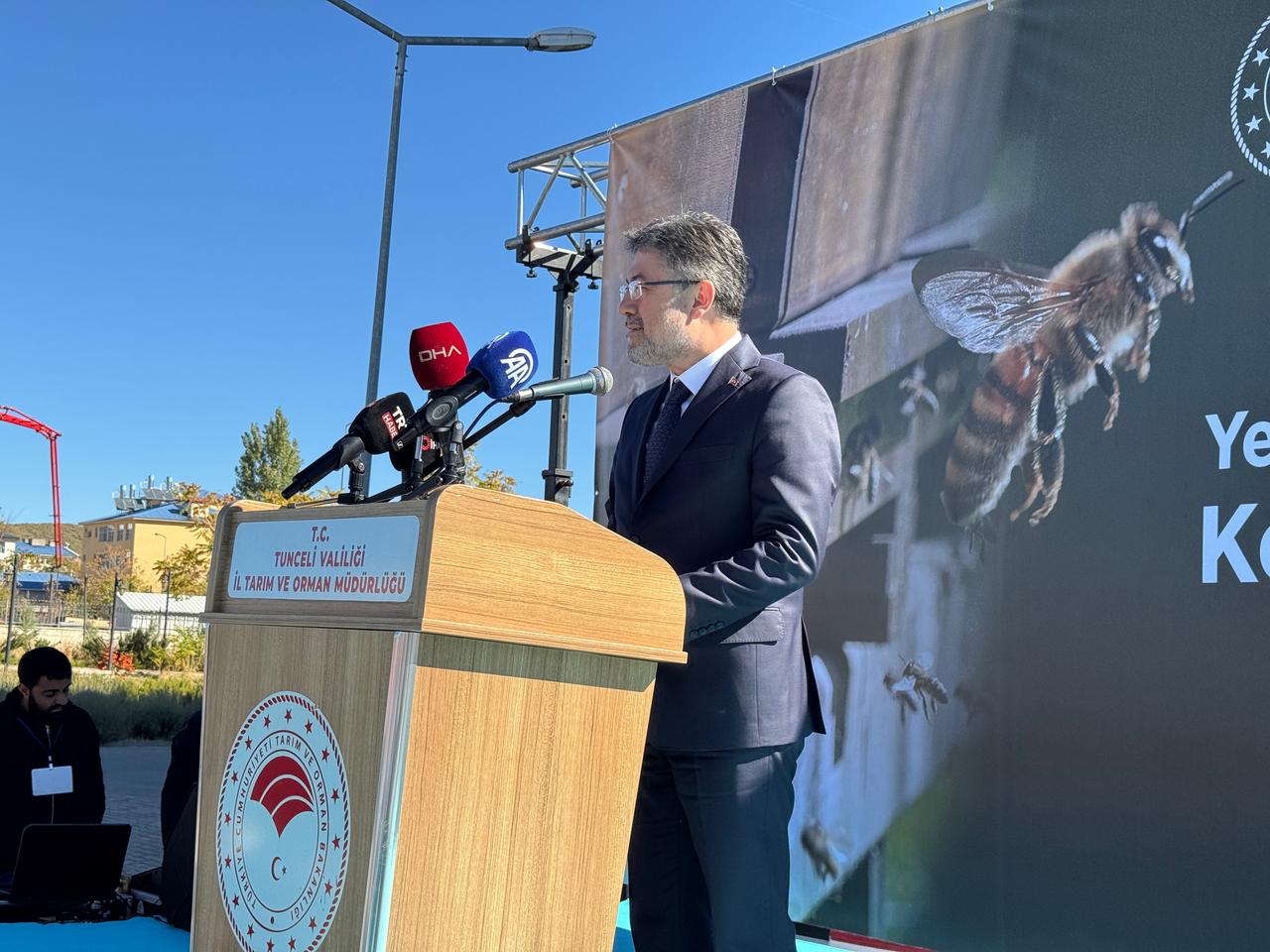
Türkiye is strengthening its presence in the global honey market, ranking second worldwide in natural honey production with 115,000 tons in 2023, according to the U.N. Food and Agriculture Organization (FAO), as the country expands beekeeping capacity and invests in sector development.
Türkiye ranked second among the world’s top natural honey-producing countries in 2023, with an estimated output of 115,000 tons, according to the latest data from FAO.

Turkish Minister of Agriculture and Forestry Ibrahim Yumakli said on Friday that “beekeeping and bee-related products are of great importance for our country.”
He noted that Türkiye will continue developing new projects to ensure the growth of all sectors in harmony with the region’s geography, natural beauty, and biodiversity.
He added that “Türkiye ranks third globally in the number of beehives and second in honey production,” according to FAO data, explaining that the number of beehives has increased by 115% to reach 9 million hives.
The minister also stated that Türkiye has 35 registered geographical indications for honey products, emphasizing the importance of protecting production quality.
He noted that in cases of fraud, the government imposes fines of up to ₺15 million ($356,396) and may suspend operations.

According to the report, global honey production reached about 1.9 million tons in 2023, while the global market was valued at approximately $9.73 billion in 2024.
The market value is expected to reach $15.18 billion by 2033, with a compound annual growth rate (CAGR) of around 5.72%.
The Asia-Pacific region accounts for more than 37.6% of the global market, driven by rising demand for natural sweeteners and healthier alternatives.
In the same context, the province of Mugla—which produces around 80% of Türkiye’s pine honey and 90% of the world’s supply—witnessed an exceptional season this year thanks to improved climate conditions and the return of the Marchalina hellenica insect, which plays a key role in producing this type of honey, after a sharp decline caused by the 2021 forest fires.
Mugla Beekeepers’ Union President Yilmaz Kaya said pine honey production reached nearly 20,000 tons this year, marking the highest level in the past five years.
He noted that the number of beehives in the region has rebounded after dropping to around 700,000 following the fires and the pandemic, stressing that “Mugla Pine Honey” is a protected geographical indication and a “global brand” that must be preserved.
More than 6,000 families work in the honey sector in the province, while another 3,000 families of “migratory beekeepers” arrive during the season.
The region also stands out for multigenerational beekeeping families, such as the Sanli family, which has practiced the craft for four generations and produces honey and its derivatives for domestic and international markets.
In parallel, the FAO is working to support Türkiye’s beekeeping sector through training and empowerment programs targeting young people and women in rural areas.
The initiative is based in Duzce province, where youth unemployment exceeds 32% and forests cover nearly 60% of the region, which hosts around 60,000 beehives.
The program focuses on technical training and developing skills in production, marketing, and small-project management, helping create local economic opportunities.
The FAO representative in Türkiye said that beekeeping is an “ideal profession” for young people in rural areas, while one participant explained that the organization helped them learn how to confidently market and sell their products.